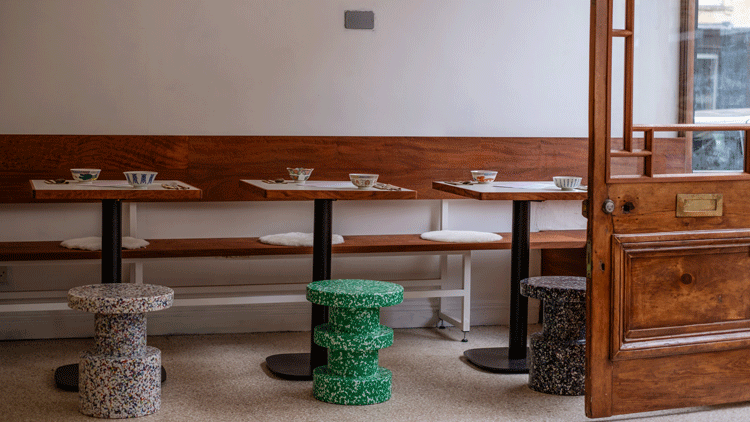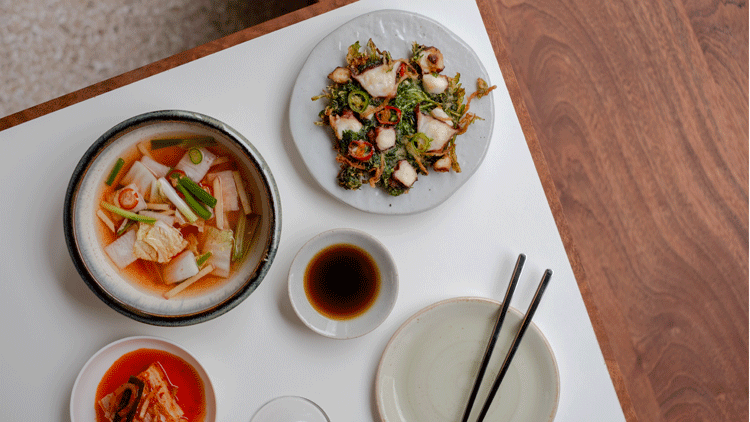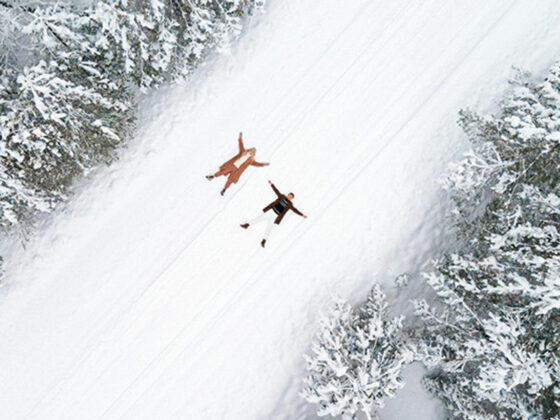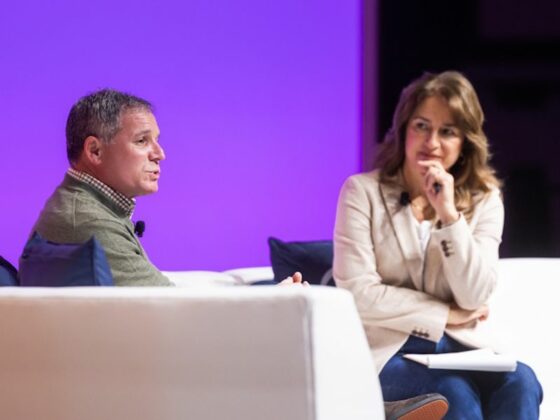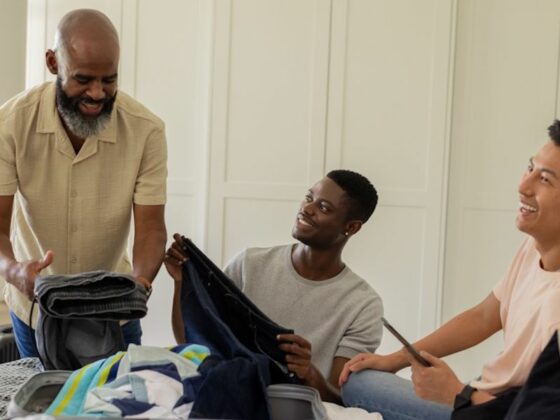Chandos Road is a bit of change from Stokes Croft
Duncan Roberston: We didn’t have any money when we launched Bokman five or so years ago. A rough and ready part of Bristol full of young hipsters was a good fit for our authentic Korean food and we were instantly drawn to the area, but quite frankly it was our only option.
Kyu Jeong Jeon: We looked at a lot of different sites for Dongnae but settled on Chandos Road (in the city’s Redland area) because it’s home to a lot of great restaurants including Wilsons and Little Hollows Pasta and has a village-y feel.
KJJ: Bokman is very small and on top of that it’s not in a building that lends itself to being a restaurant. The kitchen is tiny so we’re very limited in what we can offer. We wanted to increase our capabilities a bit and explore Korean barbecue, which we both love, and which is also one of the more known elements of the cuisine. Bokman is focused on one dish (tongdak, a wood oven-roasted chicken stuffed with sticky rice). We don’t even have room for a grill.
DR: It’s also very difficult to make money with a tiny little restaurant, no matter how busy you are. Hopefully having two small restaurants will generate more of a return.
How will Dongnae differ from your first place?
DR: In keeping with the area, it will have a bit more of a neighbourhood feel and will be more refined. That said it will still be accessible. I would not describe it as high-end, although we will be using some more premium ingredients including British wagyu, sea urchins, and razor clams. One of the great things about the food scene in Korea is that you can go to non-descript places and eat beautiful ingredients without paying a big premium for fancy interiors or service.
KJJ: While the site is much bigger than Bokman the number of covers will be roughly the same at around 40. But we will have much more kitchen space.
What’s on the menu?
KJJ: We’ll offer a lunch menu for £24 and a more involved set menu for £54. Small plates will include raw aged beef sirloin, pine nuts and Korean pear; salted jellyfish naengchae with hot mustard; and Korean fried chicken wings with chilli seed glaze. Barbecued dishes will include pork jowl and skin; wagyu featherblade; and dayboat mackerel.
DR: In general, the plates will be smaller than those at Bokman, which will make it easier for smaller parties to try a good range of dishes.
Tell us about the team at Dongnae
KJJ: Our head chef Clarence (Fung) is Korean and was most recently at Dovetail in Mayfair. He is originally from the Bristol area and has just had a kid. He was working ridiculous hours in London and wants a better work life balance. Our general manager is Rebecca Lewis, who joins us from Where The Light Gets In (in Stockport).
DR: They’re both a great fit. We’re very lucky to have them both, in fact it feels like we’re punching above our weight a bit. We have a great head chef at Bokman now so Kyu and I will be pretty much fully focused on Dongnae for the moment but eventually we will split our time equally between both restaurants.
How challenging is it to produce authentic Korean food in the Southwest of the UK?
KJJ: Very. The main problem is ingredients but it’s also hard to find staff with any experience of cooking the cuisine, or even any knowledge of it at all.
DR: I go to the fruit and vegetable market three times a week and to the Chinese supermarket every day because we can’t get the things we need delivered. There are also some foraged wild vegetables used in Korea that we have no hope of getting here so we spend a lot of time finding substitutes.
KJJ: We have also had to make our own Korean soy sauce. The factory-made stuff is fine but it’s not what we want to be using.
DR: Imagine trying to make a lasagne with burger cheese rather than parmesan. That’s what we’re up against.
What are the main misconceptions around Korean cuisine?
KJJ: When we first started people thought we were just another place serving cheap Asian food. Maybe it’s different in London but in Bristol most people don’t understand what Korean food is.
DR: After five years of hard work and persuasion and giving people the best we can it feels like people are starting to appreciate it.
What are your backgrounds?
DR: Kyu and I are both chefs by trade. I’ve cooked at Nobu and at The Capital Hotel under Éric Chavot. We met in Paris while cooking at L’Atelier de Joël Robuchon.
KJJ: I went to France and enrolled at Le Cordon Bleu, which led to a stage at Alain Ducasse’s restaurant at Hôtel Plaza Athénée and soon after a pastry chef role at L’Atelier. After a few years with Joël Robuchon we got an opportunity to oversee a hotel restaurant in Brive-la-Gaillarde (a commune in Southwest France). It was extremely hard, not least because we were cooking food with Asian influences, which wasn’t really a thing in Paris at the time, let alone rural France. We then headed to Seoul, and both found work at CJ Group (a huge Korean conglomerate). I worked in the R&D department and Duncan headed up a few of the group’s Western restaurants, including some at the famous N Seoul Tower. We returned to the UK in 2018.
Why did you choose Bristol?
DR: My parents were nearby in Shaftesbury. They were getting on and hadn’t really seen our two kids, who were born in Korea. We didn’t think there would be much demand for an authentic Korean restaurant there, so we started looking in Bristol. I was too scared to go back to London. So much had changed and I doubt we’d have been able to afford to open there anyway.
You recently got a great review from The Observer’s Jay Rayner. Did that affect bookings?
DR: It had a massive effect; it could not have happened at a better time. We got a great review from Tim Hayward (the Financial Times critic) for our takeaway during lockdown, but it didn’t really help us that much because we were in the middle of the pandemic. Jay’s review was down to us doing PR for the first time. We’ve also started working with Irene Lentsch from Studio Meraki (who works as consultant for several high-profile groups including Simon Rogan’s Umbel Restaurant Group). It feels like we have started a new chapter.
